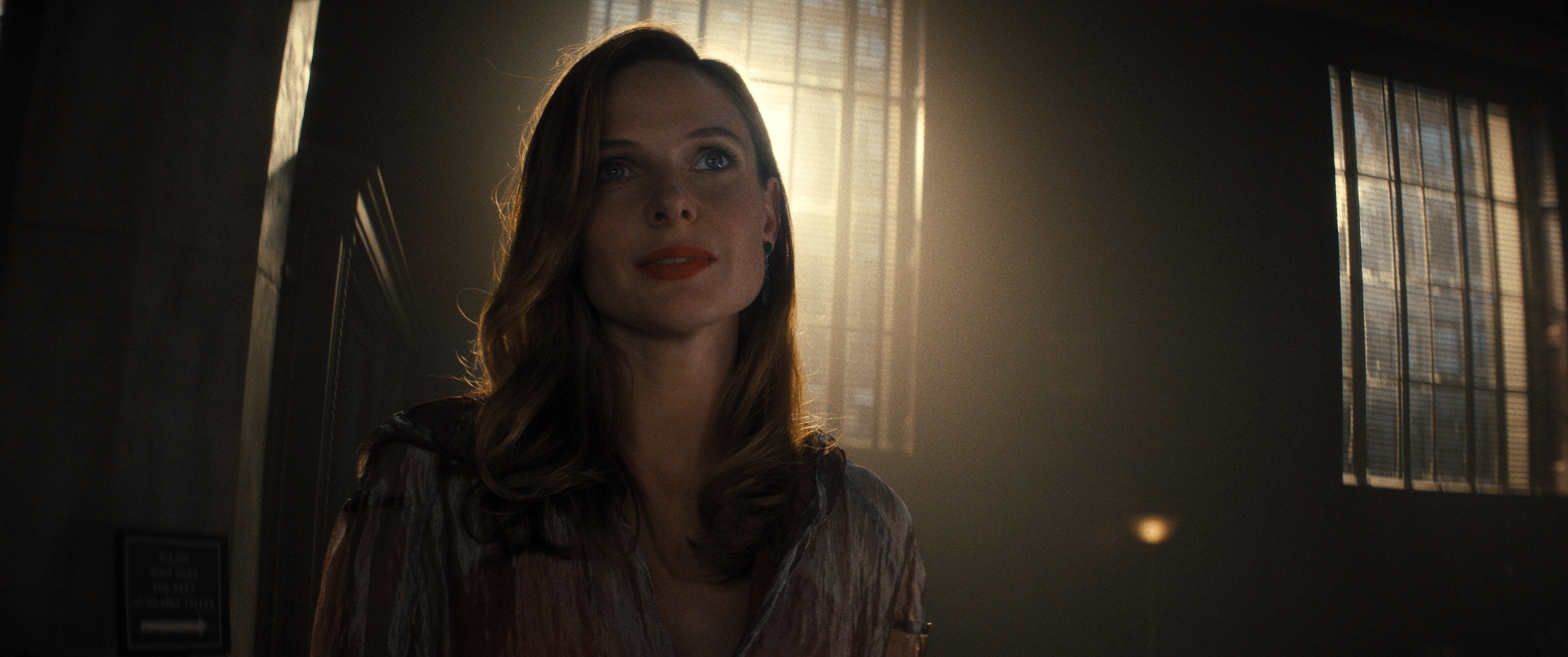Hugh Jackman is a gumshoe of lost memories in the sci-fi noir Reminiscence
This ambitious genre hybrid evokes plenty of old movies, but it's most intriguing when forging its own path

In the intriguing, convoluted dystopian noir Reminiscence, the future is not so bright. In fact, it’s so dreary—a damp tomorrow of climate change and post-traumatic stress—that everyone pays for the privilege of escaping into their buried memories of better times. On the outskirts of a perpetually flooded Miami, the lonely and damaged decamp for a dingy warehouse. Here, they slip on an electronic halo, settle into a bed of shallow water, and are lulled into a state of posthypnotic remembrance; they become like the Precogs of Minority Report, except that it’s not premonitions of what’s to come but vivid flashes of what already has that run through their heads and are projected holographically as they slumber, a little show for their hired conjurer of lost experiences. This is, of course, cinema’s latest metaphor for itself. What are the movies but a weaver of collective memory? It’s a connection made clear long before the film trots out an older version of the tech, sending these visions of the past onto a white wall like a flickering projector, in black-and-white no less.
Running the device is Nick Bannister (Hugh Jackman), a one-time soldier who now specializes in literal nostalgia trips. Though he and his faithful girl Friday, fellow hardened veteran Watts (Thandiwe Newton), sometimes moonlight for the local DA’s office (The Tank, as they call their dream machine, started as an interrogation tool, and can naturally be used to extract information), Nick isn’t a detective by trade. But he certainly drinks like the ones in the movies, a glass of brown liquor his steadfast bedside companion. He pontificates like them, too: “The past can haunt a man,” goes one of his nuggets of narrated wisdom, delivered via a running commentary that accomplishes that classic voice-over trick of basting pages of exposition in hard-boiled flavor.
It isn’t long before Nick becomes an actual gumshoe, albeit of the amateur and personally driven variety. What he’s investigating is the disappearance of a new flame: Mae (Rebecca Ferguson), the seductive chanteuse that slinked into his office one day, supposedly seeking help locating her lost house keys but finding an admirer and then lover in the process. But after a few blissful months together, she vanished. Is the dame in trouble? Or is Nick a patsy falling for the schemes of a vintage femme fatale? A no-less pressing mystery: Why have rising water levels and international conflict caused the America of the not-so-distant future to look and sound like the one of 1950s movies, complete with gangsters in smoky nightclubs, where women like Mae sing the torch songs of generations past? The World War III of this film is essentially World War II, complete with internment camps for Asian Americans—an element mentioned but never expounded upon.
Have we stepped into the Dashiell Hammett-themed sister park of Westworld? Lisa Joy, who makes her feature debut as writer and director here, co-created that HBO sci-fi mindbender. Working with (and marrying) a Nolan seems to have partially shaped her preoccupations: Reminiscence boasts multiple hallmarks of that blockbuster sibling team’s output that go beyond the explicit Inception echoes, including an anxious fixation on water and drowning, a lost and endangered paramour, and an opening shot that pushes over the flooded streets of Miami with the same ominous sweep that Christopher brought to Gotham by way of Chicago. Joy doesn’t yet possess a comparable virtuosity of craft, though she hardly lacks for ambition—or for action-movie gumption, even if a John Woo shootout in a restaurant and a knock-down, drag-out fistfight in a dilapidated building seem less than strictly crucial to the story and more like a mandated condition of getting a semi-cerebral genre throwback bankrolled.
The pleasures are of a borrowed nature, the stuff of third-, fourth-, maybe fifth-generation noir homage, just gussied up in sci-fi formal wear: all archetypes spouting purple verbiage while navigating a twisty missing-person mystery that pulls together, in the classic private-dick tradition, seemingly unrelated cases. Reminiscence, which stacks plot turns like manilla folders in an overstuffed filing cabinet (the situation comes to involve a rich philanderer, a futuristic super drug, and a dirty cop played by Cliff Curtis), is enjoyably dense but a little plodding. What it critically lacks is an engine of truly sweaty, involving obsession, the sense that its hero is profoundly haunted to his bones by the mirage of a love that’s slipped through his fingers like cigarette smoke. Jackman, who provided that by the armful in Christopher Nolan’s The Prestige, seems only half-submerged here: He’s the sleepy center of a genre-bending Big Sleep. As a result, the emotions feel half-formed, maybe half-recalled.
That titular process is nifty, though—and that goes beyond the way Nick’s device doubles as a tribute to the sad poetry of the moving picture and how it makes spectacle from desire and regret. In the most basic terms, The Tank is a flashback machine, providing information to characters and audience alike. Yet Joy, inspired by the endless possibilities of her fantasy tech, keeps creating clever wrinkles with it. Time jumps become rug pulls, as certain events are revealed to be past rather than present tense. One character delivers a passionate message to the future, confident in the knowledge that their words will be received through a projection of someone else’s memories. And in the film’s most bittersweet subplot, a widow exists in a limbo state of cherished past experience, an old clock shop constructed in her home, her brain running indefinitely through the same ancient scenario. In moments like these, Reminiscence reaches past its own memories of the detective stories of yore, to something sadder and truer and more distinctive.